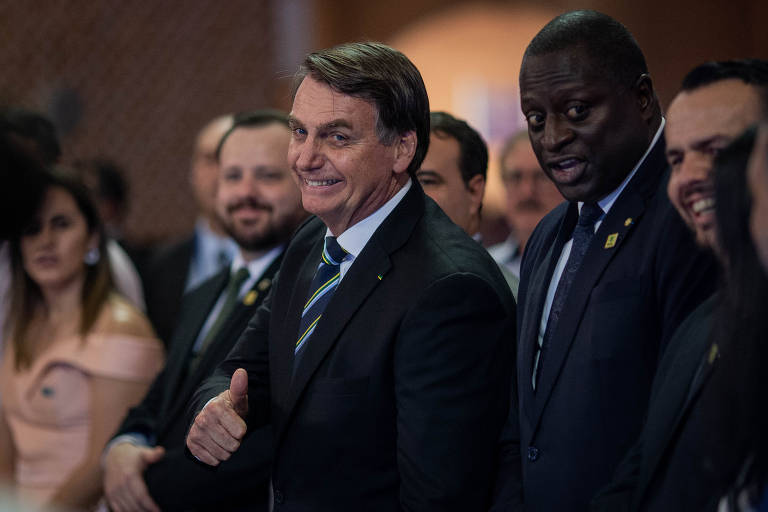In his first nine months as President, Jair Bolsonaro has already expanded the number of military, active and reserve members in the federal administration by at least 325 posts.
In addition to the president -a retired captain - and the vice president, General Hamilton Mourão, and of 8 of his 22 ministers, there are at least 2,500 military men in leadership or advisory positions. This is an upward curve initiated under Michel Temer (2016-2018) that broke with the symbolic practice of previous governments of appointing civilians to head the Ministry of Defense.
Folha obtained the information through Access to Information Law requests sent to more than 100 federal agencies.
In at least 30 agencies there was an increase in the number of military compared to Temer, while there was a reduction in four. Some did not respond to the request.
The expansion of uniforms in functions traditionally occupied by civilians after the end of the military dictatorship (1964-1985) was most significant in agencies close to Bolsonaro, such as the Institutional Security Office. In the Vice Presidency, there was a jump from 3 to 65.
Folha listened to former defense ministers and experts.
In general, many think that the Bolsonaro administration increased military presence in government agencies because he lacked a party and political structure. Before being elected president, he was a very low-profile deputy for most of his 28 years as a congressman.
"He has always been a kind of parliamentary unionist focused on the Armed Forces," said Raul Jungmann, who was Temer's Minister of Defense and Public Security.
"These presidents who come to power without a consolidated, supportive party structure tend to make this move. The first is to shrink the number of ministries, even because of the lack of skilled cadres.
"Authoritarianism is very blatant in the current government, but there is the unpreparedness, not only of the president but also of the cadres around him," said historian Carlos Fico, professor at UFRJ.
On the consequences of the "olive invasion" in eminently civilian positions, Jungmann says he sees no significant problems.
Translated by Kiratiana Freelon
